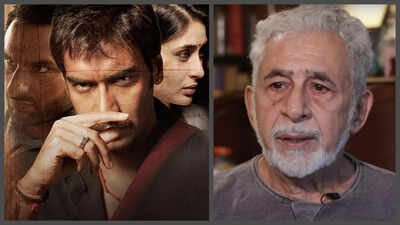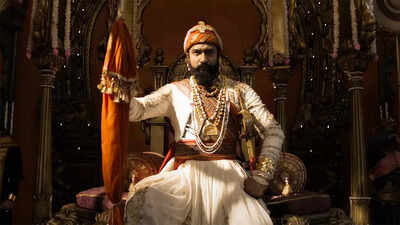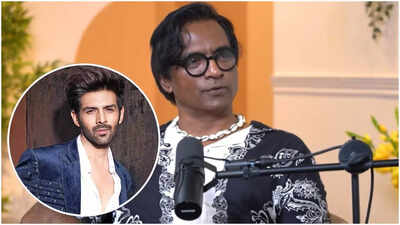Naseeruddin Shah once revealed he was sceptical of Ajay Devgn-Saif Ali Khan starrer Omkara: ‘Almost every Hindi film borrows heavily from Shakespeare’ |

Nearly two decades after its release, Omkara continues to be celebrated as one of the most daring and transformative films in Hindi cinema. Vishal Bhardwaj’s raw and riveting adaptation of Shakespeare’s Othello not only redefined how literature could be translated for Indian screens but also challenged the norms of mainstream storytelling. However, what many might not know is that even veteran actor Naseeruddin Shah had initial doubts about joining the film — until the script changed his mind.In an old interview with Wild Films India, Naseer revealed his early doubts about the film. He admitted being sceptical—until he read the script. He went on to explain that while it might seem like India hasn’t made many films based on Shakespeare, the influence of the playwright runs deep in Hindi cinema. From mistaken identities to family feuds and love across class divides, he pointed out how many Bollywood tropes actually trace back to Shakespearean plots—unintentionally borrowed over the years by generations of writers.The actor didn’t hold back in criticising the film industry’s habit of borrowing from Shakespeare without giving credit. Reflecting on the deep yet often unacknowledged influence of the playwright on Hindi cinema, he pointed out how many classic Bollywood storylines are rooted in Shakespearean themes—but rarely is the source acknowledged. He noted that the industry has strayed so far from the originals that it’s hard to even recognise where these ideas came from. Citing Javed Akhtar’s wry comment that “the only original thing is that whose source hasn’t been discovered,” Shah expressed his disagreement, calling out the broader mindset of Bollywood creators who often pass off borrowed ideas as their own.It was only after reading the script that he fully came on board with Omkara, realising it was an even more rooted and authentic adaptation than Maqbool. While Othello wasn’t his favourite Shakespearean play, the actor found Omkara deeply resonant—especially because of its realistic portrayal of life in Uttar Pradesh, a world he was familiar with. Coming from a town near Meerut, Shah had seen firsthand the kind of local gangsters and power struggles depicted in the film. Unlike the Mumbai underworld of Maqbool, which felt distant to him, the characters and settings of Omkara felt strikingly real and relatable, making Vishal Bhardwaj’s vision all the more compelling in his eyes.Reflecting on Omkara’s portrayal of Shakespeare’s most puzzling villain, Iago—reimagined as Langda Tyagi—Shah applauded Vishal Bhardwaj and his writing team for adding clarity and emotional weight to characters often left ambiguous in the original play. He noted how Iago, one of literature’s greatest enigmas, is traditionally depicted as a villain without clear motive. But in Omkara, the motivations of both Langda Tyagi and Omi (Othello) are far more fleshed out, lending a stronger psychological grounding to their actions. Shah even remarked that while it might seem bold to say the adaptation improves on Shakespeare, Bhardwaj’s take offers a deeper, more relatable understanding—especially of jealousy, a central theme in the story.Today, Omkara stands as a cult classic in Indian cinema. Saif Ali Khan’s career-defining performance as Langda Tyagi remains a high point, supported by a powerful ensemble cast including Ajay Devgn, Kareena Kapoor, Konkona Sen Sharma, Vivek Oberoi, and Bipasha Basu. The film’s earthy, unapologetically rustic dialogue and unforgettable one-liners continue to leave an impact nearly two decades later. Gulzar’s evocative lyrics and Vishal Bhardwaj’s music—from the fiery “Beedi” to the haunting “Naina Thag Lenge”—further cemented the film’s place in pop culture, making Omkara not just a literary adaptation, but a cinematic milestone.






